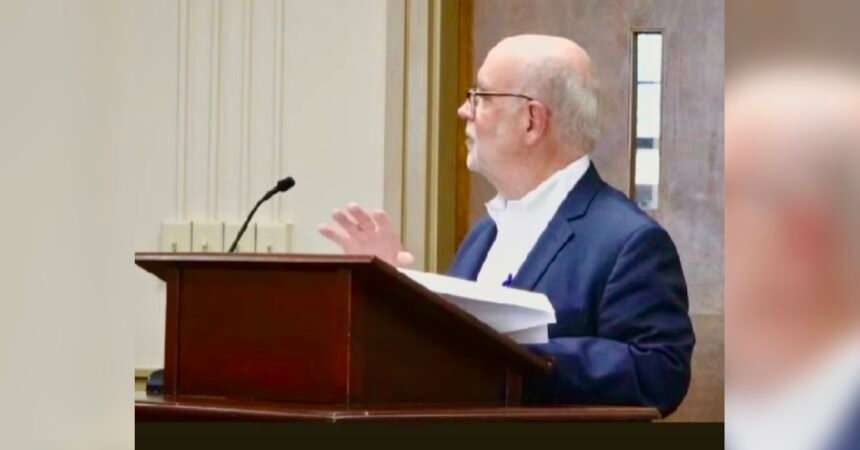
The Gallatin City Council approved a resolution in its Tuesday, Aug. 5, meeting for the development of preliminary concept plans for Project Phoenix, which include building a new city hall.
After the resolution was introduced, Mayor Paige Brown emphasized that the resolution does not mean the city is committed to building a new city hall.
“This resolution simply gives them direction to create plans, and after several weeks of considering, members of this council decided they want to see plans with a new city hall,” she said.
Jouvence asked why only one developer was being considered for Project Phoenix.
“Everything we do in the city, we put it to bid,” he said.
Brown said that when Boyle Investments came to the city leaders with the idea, she had asked the same question.
“But Boyle was planning to invest many dollars to study the feasibility and design a project in cooperation with the city,” she said.
Brown turned the question over to Rosemary Bates, Director of Gallatin’s Economic Development Agency (EDA), who asked Nashville attorney J. Tomas Trent, a partner in the Bradley Law Firm, to explain the legalities involved.
Trent, who has been serving as a legal advisor for Gallatin city officials regarding the Phoenix Project, came forward to explain, saying, “The issue was whether a developer would be willing to invest the time and money to come up with a plan allowing you to decide if you would want to proceed.”
He continued, “It would not be right for them to invest all that time and money and then have multiple companies come in and underbid them.”
The Industrial Development Corporation Act allows a city’s Industrial Development Board (IDB) to negotiate with private parties without bidding, according to Trent, and therefore, a decision was made to use Gallatin’s IDB as a vehicle.
Brown added that an attraction of using Boyle Investments was that their plan included an exit for the city if the council decided not to do the project.
Trent inserted, “And to your credit, you limited your exposure to $50,000 if you pull out, and other than that, there is no obligation on the part of the city.”
Jouvence brought up a study on renovating City Hall that was completed in 2020.
“Why did we bring in Studio 8 when we already had a company that knew our building?” he asked.
Bates explained that the city issued a Request for Qualifications and interviewed four firms to do the space assessment on City Hall — including Gresham Smith, the firm that did the 2020 study.
“Studio 8 received the highest ratings by far,” she said. “Their work was more all-encompassing, and they spent a lot of time listening to the people who work in the building.”
Jouvence reiterated his opinion that the city should offer the development to more than one company.
“It shouldn’t be us going around the law to use the IDB to bend the system,” he said.
“It’s not that,” Brown quickly responded.
“That’s what I basically heard,” Jouvence said. “We go to the IDB so we don’t have to open a bidding process.”
City Attorney Susan High-McAuley stepped in.
“We’re going through the IDB because that is a legal process,” she said. “We’re not trying to bend a system.”
Brown commented that during the year that the Phoenix Project had been public knowledge, no other company besides Boyle had expressed any interest in developing the City Hall block.
“And I want to say again that this project is compelling and different and unique because it produces a revenue stream on non-revenue-producing property,” she concluded.
Brown brought up future city expenditures, saying, “We’re getting ready to build a new fire hall, and soon we will need a new police station. This project allows us to create a great asset to the existing square and revenue to support the investments that the city needs to make, rather than the money coming from the taxpayers. I just think this is worth exploring — and that’s all this is.”
Councilman Steven Carter moved to call the question, which was seconded by Vice Mayor Hayes, and the resolution passed 4-1, with Jouvence voting no.
The council also approved a resolution authorizing the mayor to sign an amended and restated Memorandum of Understanding (MOU) for Project Phoenix. Before the vote, Jouvence again expressed qualms about the exclusivity clause in the document.
“I don’t think we can do that,” he said. “I would like Mr. Trent to speak to that.”
After coming to the podium, Trent responded, “Of course we can, if you approve the project,” he said. “Nothing is approved at this point.”
Trent explained that the Memorandum of Understanding (MOU) is signed by three parties: the city of Gallatin, the IDB and Boyle Investment.
“However, the amended MOU you are seeing tonight is structured so that the decision-making process is entirely vested in this city council — and that was done because of discussions that have taken place over the last year and a half,” he said.
Trent emphasized that the details in the MOU — specifically about parking — will be determined when the council has all the facts, which cannot be ascertained until plans are developed by Boyle Investments.
The council voted 4-1 to approve the signing of the MOU, with Jouvence casting the only negative vote.











